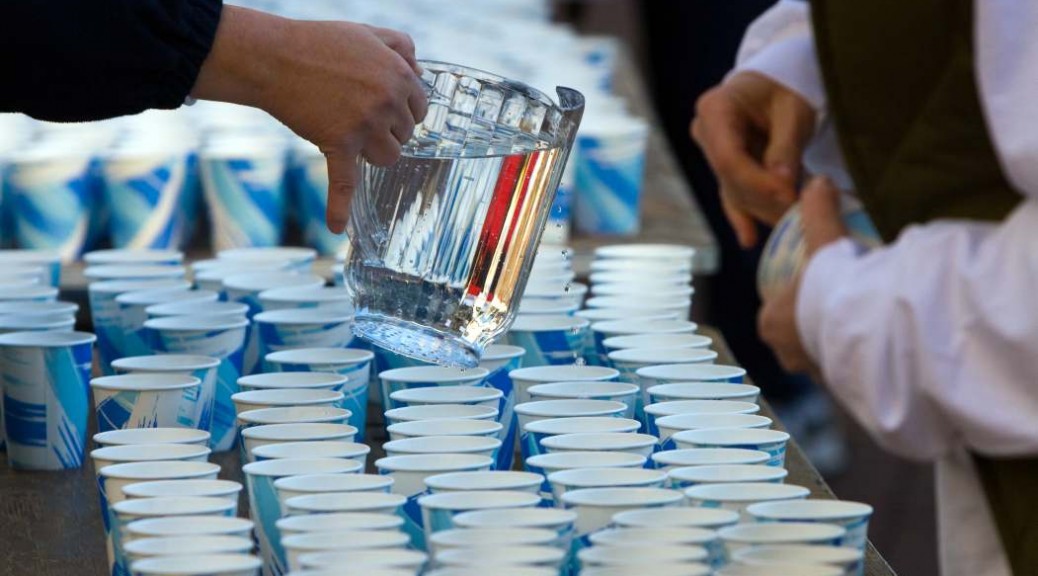 On Sunday, September 25, 2016, I ran the Berlin Marathon. While, I was incredibly grateful for the opportunity to be in Berlin and to race, the marathon did not go quite as I had planned. I believe I have poor fueling (both before and during the race) and dehydration to blame.
On Sunday, September 25, 2016, I ran the Berlin Marathon. While, I was incredibly grateful for the opportunity to be in Berlin and to race, the marathon did not go quite as I had planned. I believe I have poor fueling (both before and during the race) and dehydration to blame.
A marathon alone can be tough. Then add a different time zone, travel, jet lag, warmer than expected temperatures, and a change of diet into the mix and it can be a recipe for disaster. I am not trying to make excuses for my poor marathon performance (& when I say poor, I mean it was less than what I know I am capable of), but rather trying to understand what went wrong and learn from my mistakes for my next one; which is NYC in just a few short weeks (11/6!!). I want to be sure I have a solid fuel and hydration plan in place, so what happened in Berlin doesn’t happen to me in NYC.
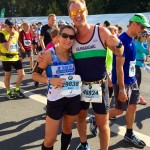 To tell you a little bit of what happened in Berlin: I was feeling strong for the majority of the race and was on track for a sub 4 hour marathon. However, around the last 5k the wheels fell off. I was extremely hot and dehydrated and I knew that I had not properly fueled. I started to enter into the danger zone; I was wobbly, staggering, and my vision became blurry. I wasn’t sure I was going to make it. I even thought about stopping and lying on the side of the road. Then a gentleman by the name of Calvin saved me. He ran up to me and asked me if I was ok. I told him that I might pass out. He took my arm and encouraged me to stop and walk. Calvin helped me to the next water station, got me fluids and stayed with me for the duration of the race; even walking with me for almost 2 miles. I’m not sure I could have finished without him, but I did in 4:11. This man could have quite possibly saved my life.
To tell you a little bit of what happened in Berlin: I was feeling strong for the majority of the race and was on track for a sub 4 hour marathon. However, around the last 5k the wheels fell off. I was extremely hot and dehydrated and I knew that I had not properly fueled. I started to enter into the danger zone; I was wobbly, staggering, and my vision became blurry. I wasn’t sure I was going to make it. I even thought about stopping and lying on the side of the road. Then a gentleman by the name of Calvin saved me. He ran up to me and asked me if I was ok. I told him that I might pass out. He took my arm and encouraged me to stop and walk. Calvin helped me to the next water station, got me fluids and stayed with me for the duration of the race; even walking with me for almost 2 miles. I’m not sure I could have finished without him, but I did in 4:11. This man could have quite possibly saved my life.
Fueling and hydrating properly is critical. I am usually very good at hydrating and fueling before and during a race, but it’s important to review your plan, make adjustments as needed and get ready so you can set yourself up for a successful run.
To make it through a long run or a marathon, what you eat before and during the run is critical. Your meals in the hours before the run will supply your muscles with glycogen and will essentially top off your fuel tank. Glycogen is your body’s most easily accessible form of energy and is needed to get you through those longer miles. So be sure to fuel smart and get your body ready to run.
When preparing for a marathon, you need to remember that you can’t completely fill your muscles with glycogen from just one meal, so you should start carbo-loading two or three days prior to your race. You’ll want 85-95% of your calories coming from carbs. For a 150 pound runner like myself, that’s 600 grams or 2,400 calories of carbs per day.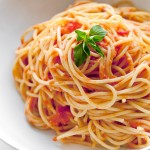 **This may obviously cause you to add on a few pounds, but don’t worry those will come right off after the race. Then the day before your race, eat meals high in carbs, but eat dinner early so your body has time to digest. My pre-race meal is usually pasta with red sauce and bread. Also, remember to hydrate and drink lots of water, starting three days before the race too. You should shoot for at least a gallon of water a day.
**This may obviously cause you to add on a few pounds, but don’t worry those will come right off after the race. Then the day before your race, eat meals high in carbs, but eat dinner early so your body has time to digest. My pre-race meal is usually pasta with red sauce and bread. Also, remember to hydrate and drink lots of water, starting three days before the race too. You should shoot for at least a gallon of water a day.
On the morning of the race, approximately 3 hours before the start of your race, you should eat approximately 150 grams of carbs. You can opt for oatmeal, a bagel, and/or sports drink. I typically have whole wheat bread with PB, a banana, and gatorade.
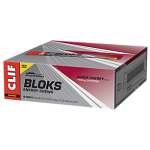
During the run, your tank will become depleted, and that’s why it’s necessary to add in fuel as you go. Many experts suggest consuming between 30-60 grams of carbohydrate an hour. I personally aim for about 48 grams of carbs each hour, which is about 1 sleeve of Clif Bloks Energy Chews. I take 2-3 every 3 miles during a race or long run. Your system can only handle so many grams of carbs at once, which is why I take in a few bloks every 3 miles. I also like to chase my bloks with water so they’re easier to swallow and it won’t sit like a rock in my belly.
If you consume well below this target range for carbs, you may get that sensation we call- “hitting the wall”. You hit “the wall” because your body has run out of glycogen. This causes your body to slow down because it now has to turn fat into energy. Once you “hit the wall”, it’s difficult, both physically and mentally to recover. This is what I believe happened to me in Berlin. 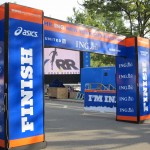 To avoid this sensation, you’ll want to start adding more fuel in the beginning stages of your run. If you do so, you can ensure that your body is well hydrated and fueled and will allow you to cross the finish line feeling strong.
To avoid this sensation, you’ll want to start adding more fuel in the beginning stages of your run. If you do so, you can ensure that your body is well hydrated and fueled and will allow you to cross the finish line feeling strong.
I’ve got my sights set on NYC! Here’s to proper fueling and staying hydrated! #NYCMarathon2016

